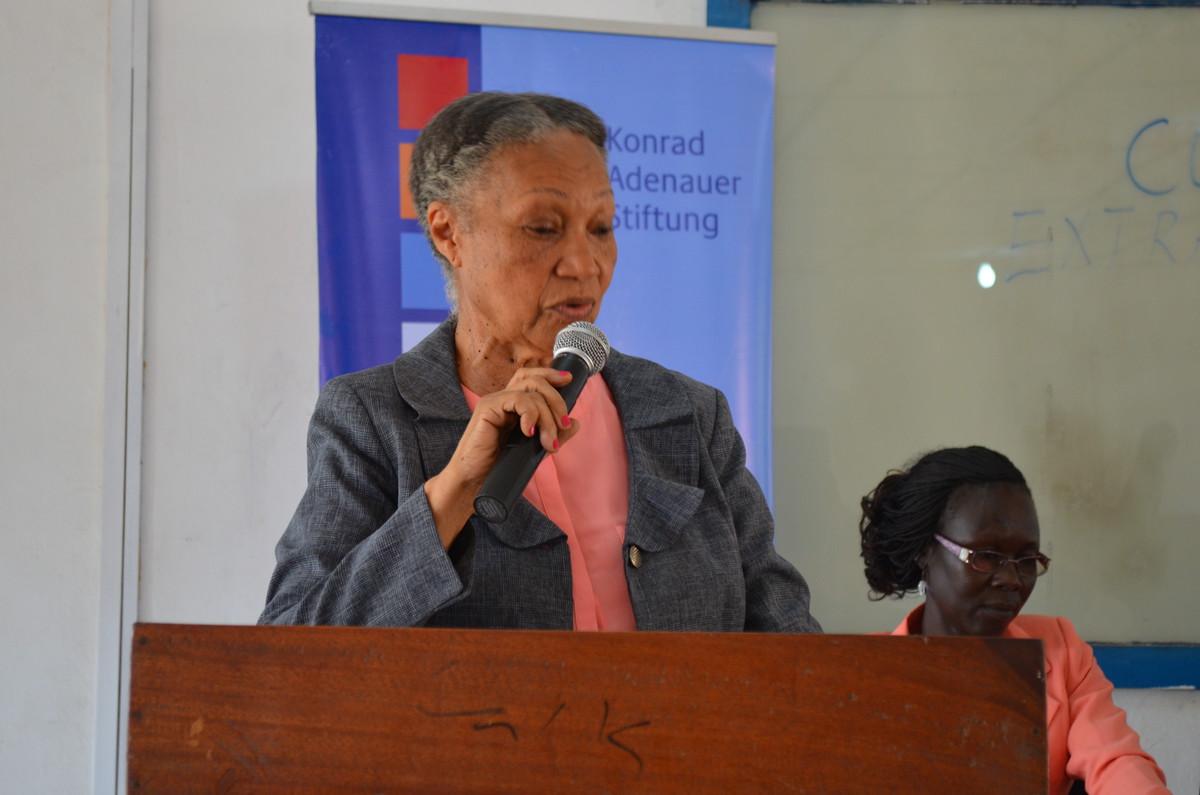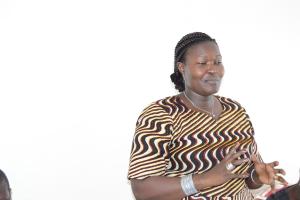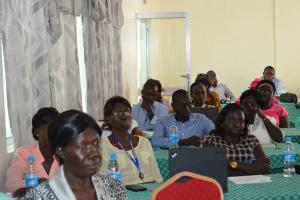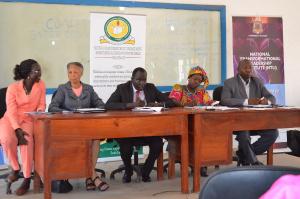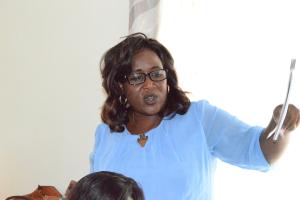THE ROLE OF SOUTH SUDAN WOMEN IN PEACE BUILDING AND DEMOCRATIC CONSOLIDATION - Foundation Office Uganda and South Sudan
Event Reports
In light of this special recognition, the Konrad-Adenauer-Stiftung has collaborated with South Sudan Democratic Engagement, Monitoring and Observation Programme (SSuDEMOP) to enhance women’s participation in South Sudan’s democratic processes. This partnership involves organizing workshops, public dialogues and disseminating relevant information through publishing the views and perspectives of South Sudanese women in state and peace building.
To kick-start the collaboration, a workshop was held for one and a half days and followed by a public dialogue at the University of Juba from the 8-9th of June 2016. The sessions provided a platform to discuss, share and empower the South Sudanese women to actively participate in the transitional government of national unity which was crafted with the August 2015 Peace Truce and effected in May 2016 when Machar and his loyalist in SPLM-IO joined Kiir’s SPLM-IG to forge a brighter destiny for a country which has been severely crippled by civil conflicts.
The workshop and the public dialogue was conceptualized from the conviction that facilitating South Sudanese women to further discuss the implementation of the 2015 Addis Ababa Peace Accord while engendering women would provide a fertile ground for nurturing democracy in the world’s newest state. The workshop and public dialogue was part of the series geared towards the development of a National Strategy for involving women in the TGoNU and it is envisaged that this document will go a long way to guide and strengthen efforts meant to ensure adequate participation of women in leadership and decision making processes during and after the transitional period in different sectors of the society.
During the workshop attended by 54 women fetched from a broad spectrum of sectors, participants were taken through various activities which offered both practical and theoretical insights on women and peace building movements and democratic consolidation. Merekaje Lorna – the Secretary General SSuDEMOP started the session by making a seminal presentation on the state of women in South Sudan and why they should not just sit back and watch only men decide how societies are governed and managed. Women, she notes, “are the pillars of our society and delinking them from governance makes our foundation so fragile and most susceptible to conflict, violence and war”.
Hon. Dr. Betty Achan Ogwaro from National Legislative Assembly and an aspiring candidate for the Speaker of Parliament also presented a paper on gender mainstreaming and strongly advocated for creating spaces through affirmative action schemes to enable women climb through the political ladders currently dominated by men. “Can you imagine that none of the 28 newly created states has a female governor?” She wondered. She concluded by urging women to find creative ways of political engagement and participation to break the glass ceilings that continue to trap South Sudanese women from constructive political activism.
During the workshop, the 2015 Peace Agreement was also discussed in depth and many participants applauded the session because many of them had not read, let alone ever participated in any forum where the document was synthesized. The participants requested that the document should be translated in local languages and creative ways of information dissemination invented to give millions of South Sudanese the opportunity to know about it and understand its implications for democratic and sustainable development.
At the public dialogue, a panel discussion that comprised of diverse pool of personalities like Rajab Mohandis - Executive Director South Sudan Network for Domestic Elections (SSuNDE), Dr. Pauline Riak - Deputy Vice Chancellor for Academic Affairs, University of Juba, Hon Sabina Dario Lokolong-Member of National Legislative Assembly, Tabitha Kenyi -National Transformation Leadership Institute, University of Juba, and Beny Gideon from South Sudan Law Society provided an exciting opportunity to digest crucial issues like legal frameworks, moral and constitutional rights of women to participate in democratic processes. The debate was moderated by Asentawaa Lo-Liyong, a youth activist and founder of South Sudan’s Youth of Today movement.
The keynote Speaker, Prof. Pauline Riak - Deputy Vice chancellor for Academic Affairs at the University of Juba urged women to dialogue with each other as women, be strategic and purposeful, speak up boldly without fear or favor and engage like-minded people as they forge forward in nurturing democracy in the Republic of South Sudan.
Summarily, the following were the achieved during the workshop:
•There was a diversity of ideas shared on how women can participate in democracy and good governance.
•The women got the opportunity to interact with their women representatives in the national legislative assembly
•A women strategic document was developed and built with the inputs from the discussions



